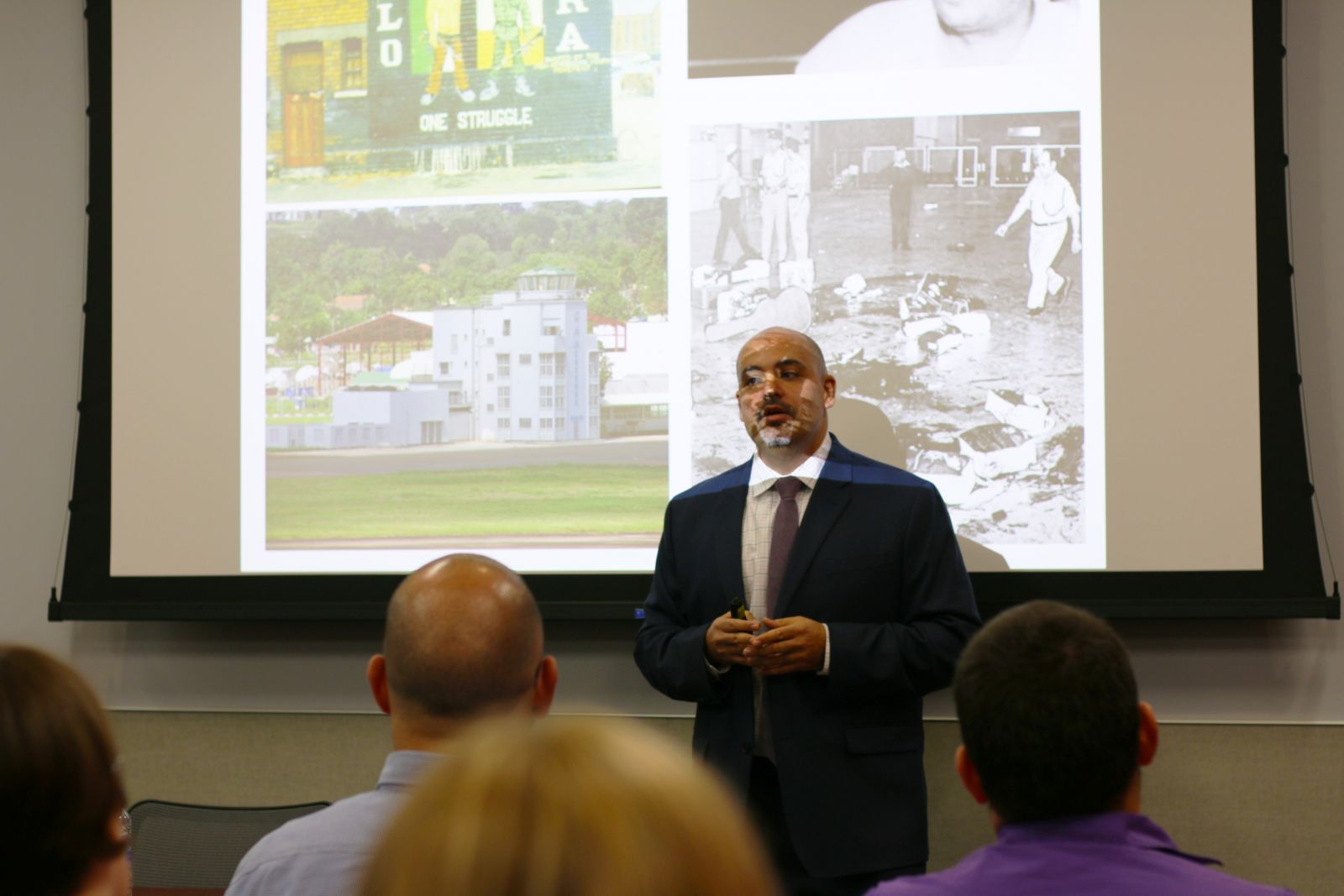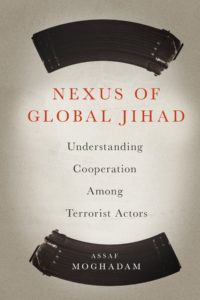The study of terrorism cooperation is complex; there are many factors to consider, and no two situations are the same. This general statement was a central theme of Dr. Assaf Moghadam’s lecture at START headquarters last month, in which he discussed the interconnectedness of terrorist groups and his book, “Nexus of Global Jihad: Understanding Cooperation Among Terrorist Actors.”
An acclaimed author and noted scholar, Moghadam is associate professor and director of the Master’s Program in Government at the Interdisciplinary Center (IDC) Herzliya, Israel. In his lecture he explained the threat associated with terrorism cooperation, detailing how cooperation can boost capacity and performance of terrorists.
Moghadam explained that alliances can form when terrorist actors are working together, and can ultimately prolong the vitality and longevity of terrorist organizations. He noted that the current conditions of insurgency and the civil war in Syria are conducive to this threat, as rifts between government and citizens create more terrorist actors, which in turn creates more cooperative crossover.
“When we think about cooperation today in the context of terrorism, we need to think beyond training camps and formal terrorist organizations,” Moghadam said. “We cannot understand the environment without understanding the actors, and vice versa.”
 In his book and talk, Moghadam outlined a holistic typology of terrorist cooperation that takes into account the diversity of terrorist actors – a spectrum ranging from informal actors such as “terrorist entrepreneurs” to more formal actors such as terrorist and insurgent organizations – as well as the distinction between high-end and low-end forms of cooperation, based on differing qualities of collaborative relationship.
In his book and talk, Moghadam outlined a holistic typology of terrorist cooperation that takes into account the diversity of terrorist actors – a spectrum ranging from informal actors such as “terrorist entrepreneurs” to more formal actors such as terrorist and insurgent organizations – as well as the distinction between high-end and low-end forms of cooperation, based on differing qualities of collaborative relationship.
Moghadam categorized transactional cooperation, such as selling weapons for money, as an example of the low end of the cooperation spectrum. A step up from that is tactical cooperation, followed by alliance, and then merger.
“We can trace relationships over time, which helps us appreciate the value of the model,” Moghadam said. “My model helps us understand how the relationships change over time in terms of quality and strength.”
In addition to providing a lens in which to understand terrorist cooperation, Moghadam offered recommendations for how counterterrorism officials can tailor policies to disrupt various forms of cooperation. For instance, in cases of mergers, counterterrorism efforts should exploit rifts around personalities, because disagreements over ideology and strategy are unlikely between merged groups.
Moghadam is Director of Academic Affairs at the International Institute for Counter-Terrorism (ICT); a fellow at the Combating Terrorism Center at West Point (CTC); an Adjunct Associate Professor at the Department of Political Science at Columbia University; and a Senior Fellow at the Center on National Security at Fordham Law School (CNS). He also serves as Contributing Editor for the journal Studies in Conflict & Terrorism. He has authored or edited five books on terrorism and political violence, including Nexus of Global Jihad: Understanding Cooperation among Terrorist Actors (Columbia University Press, 2017), and the award winning The Globalization of Martyrdom: Al Qaeda, Salafi Jihad, and the Diffusion of Suicide Attacks (Johns Hopkins University Press, 2008).
